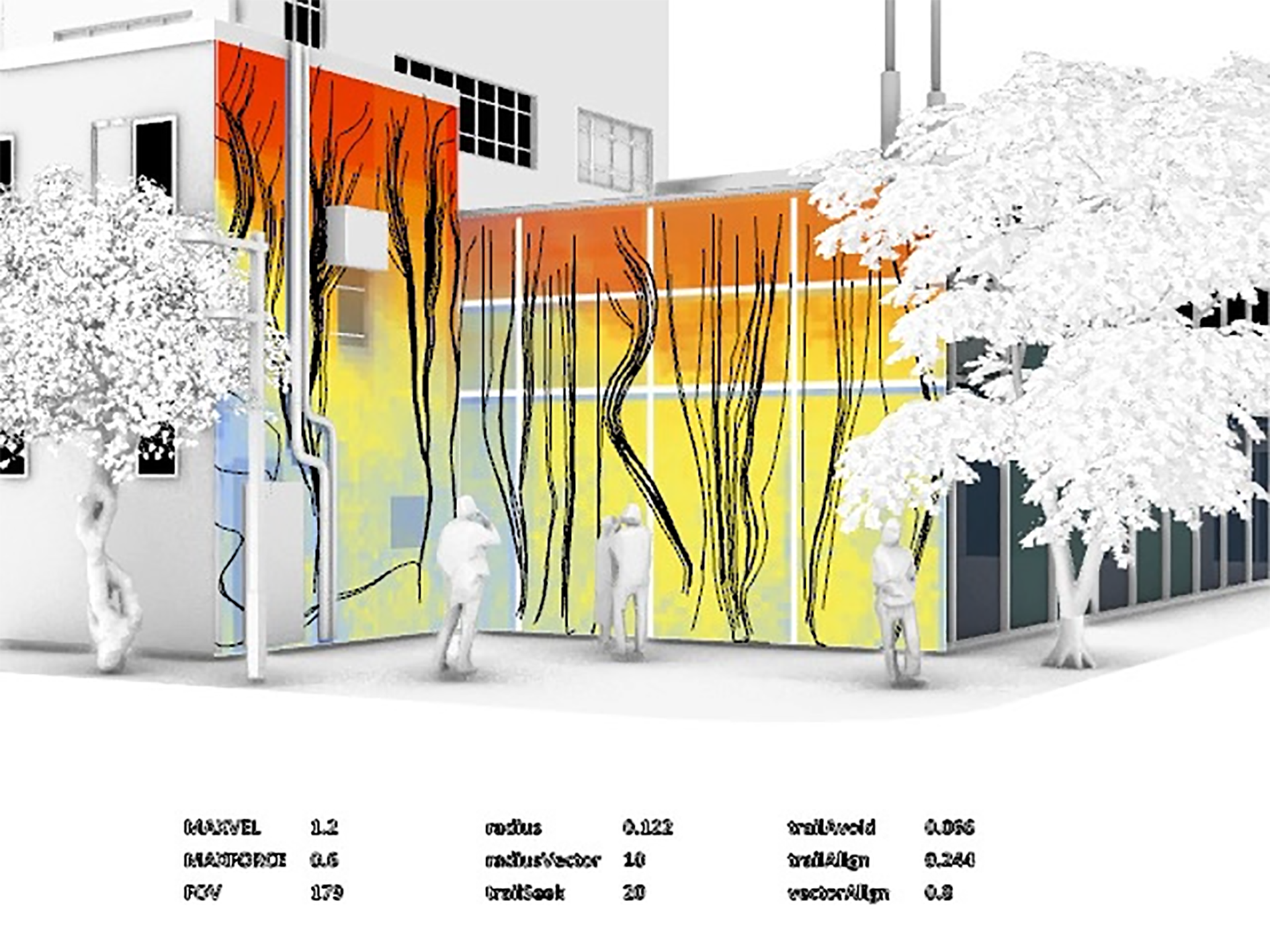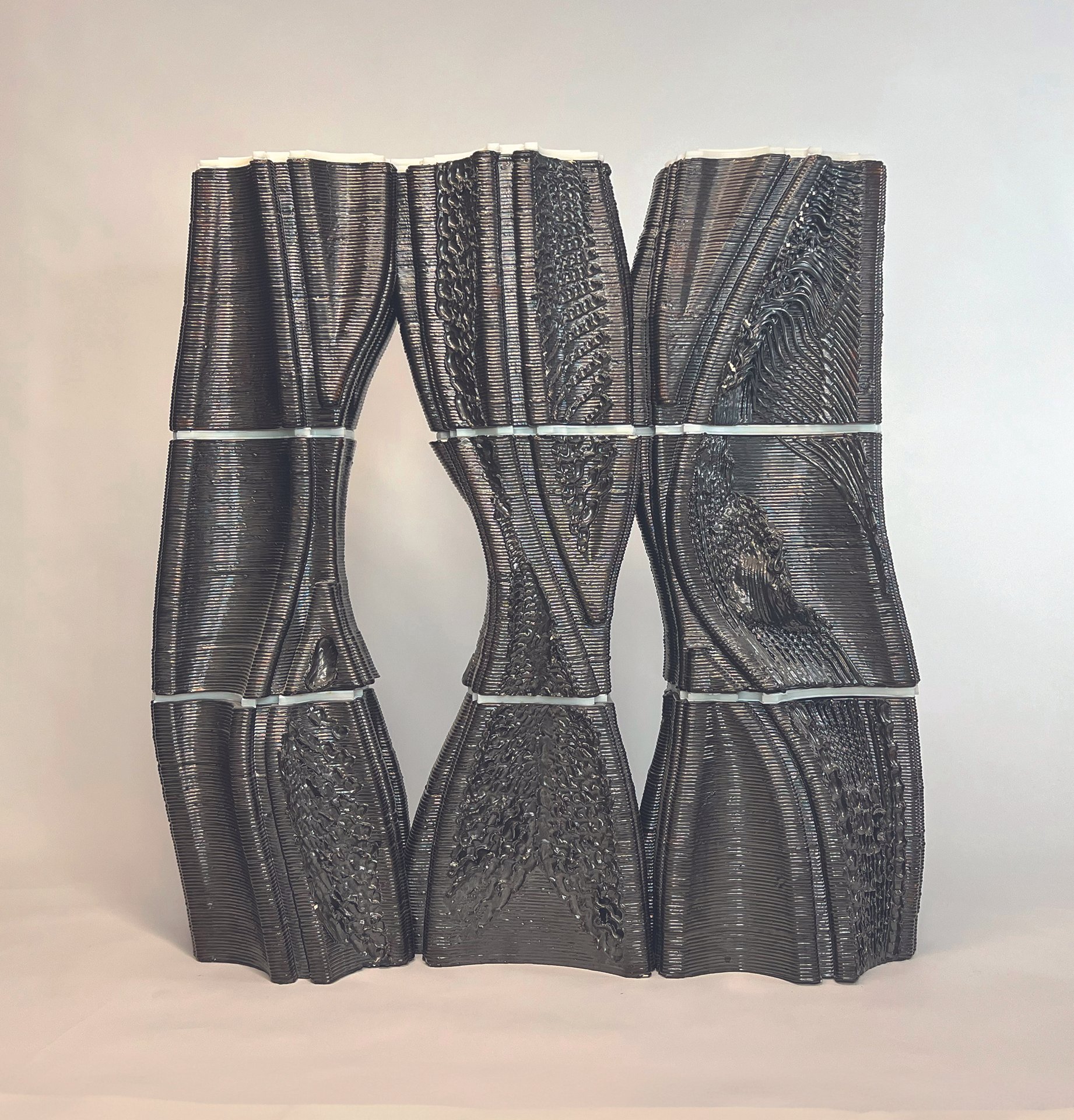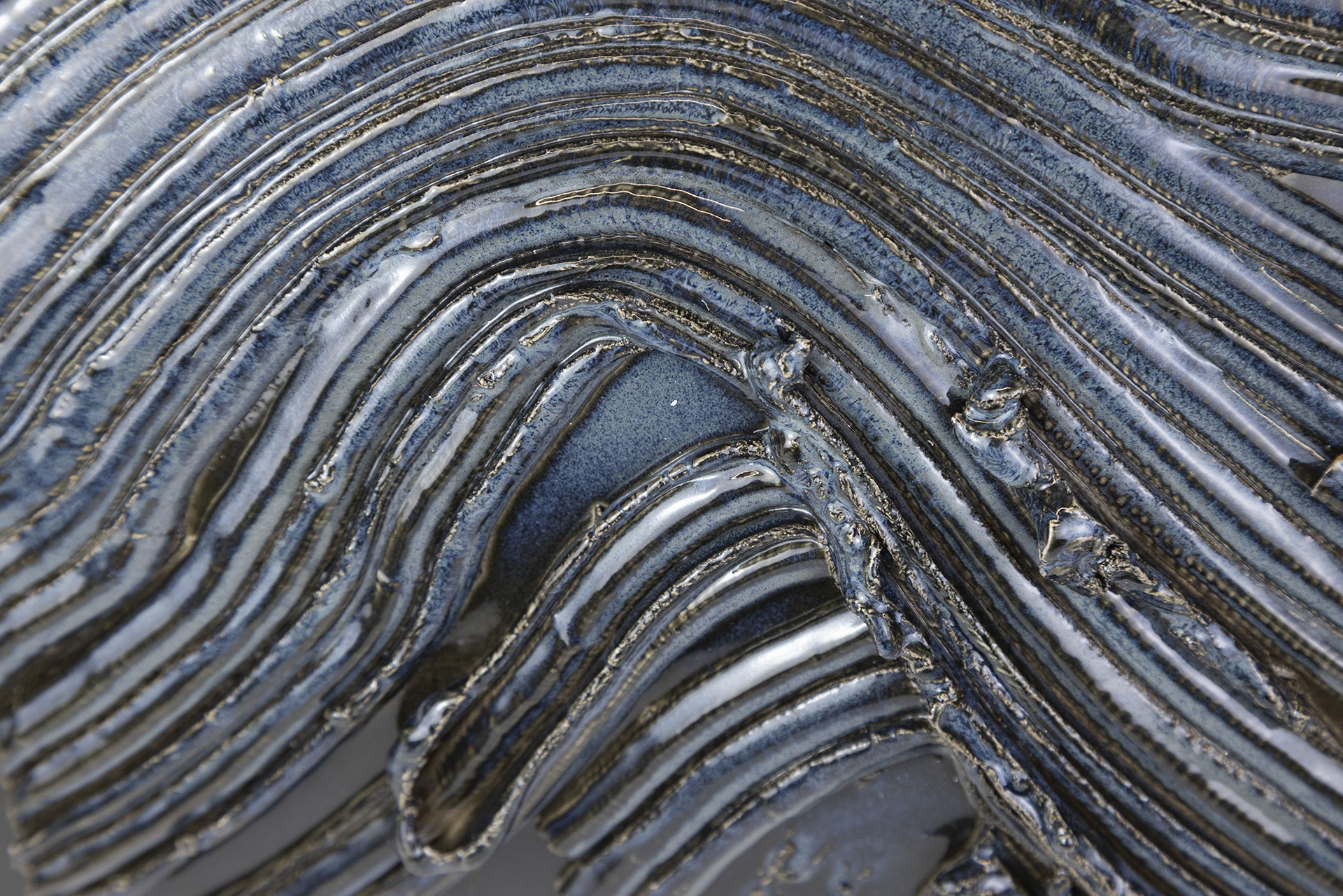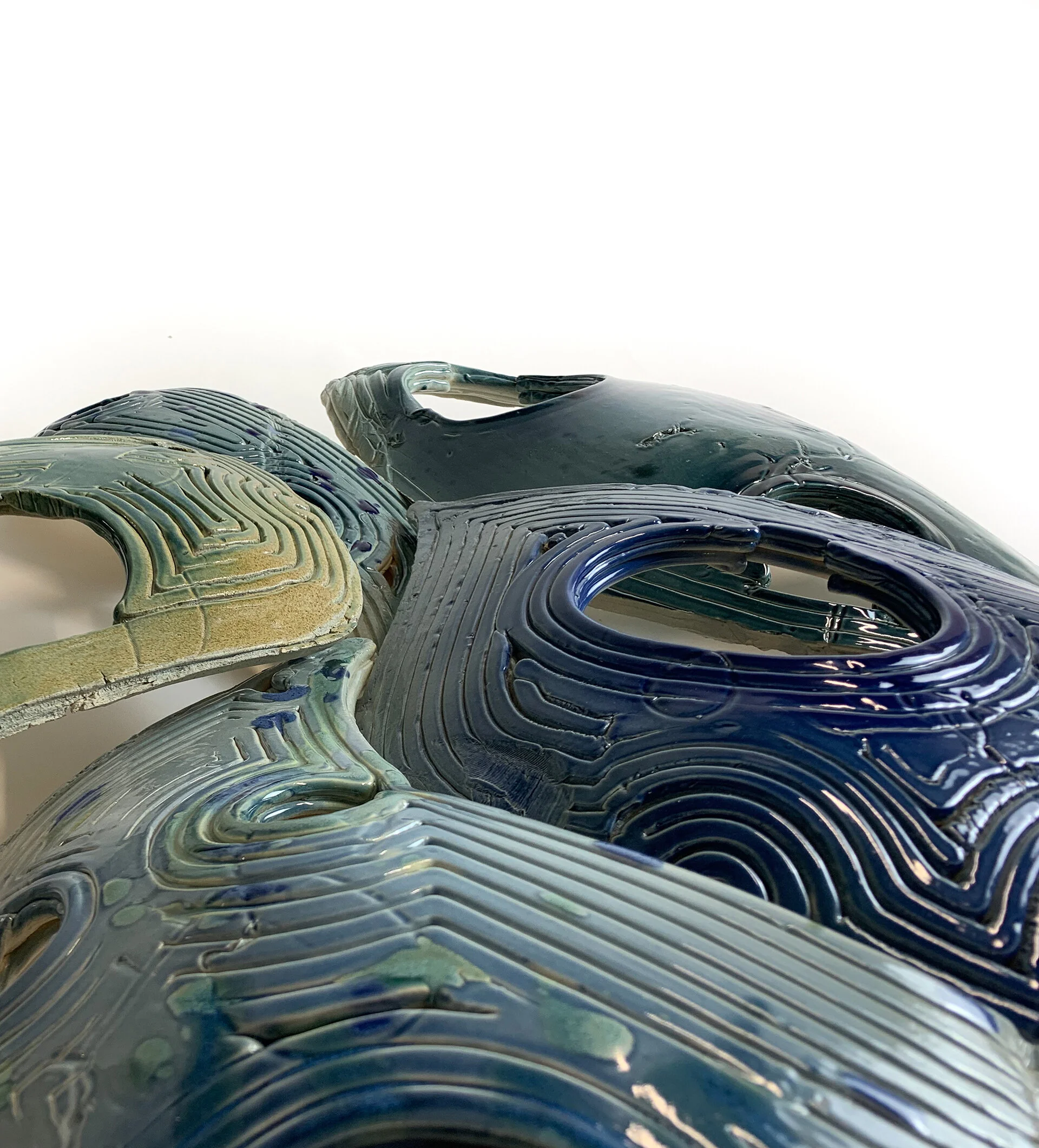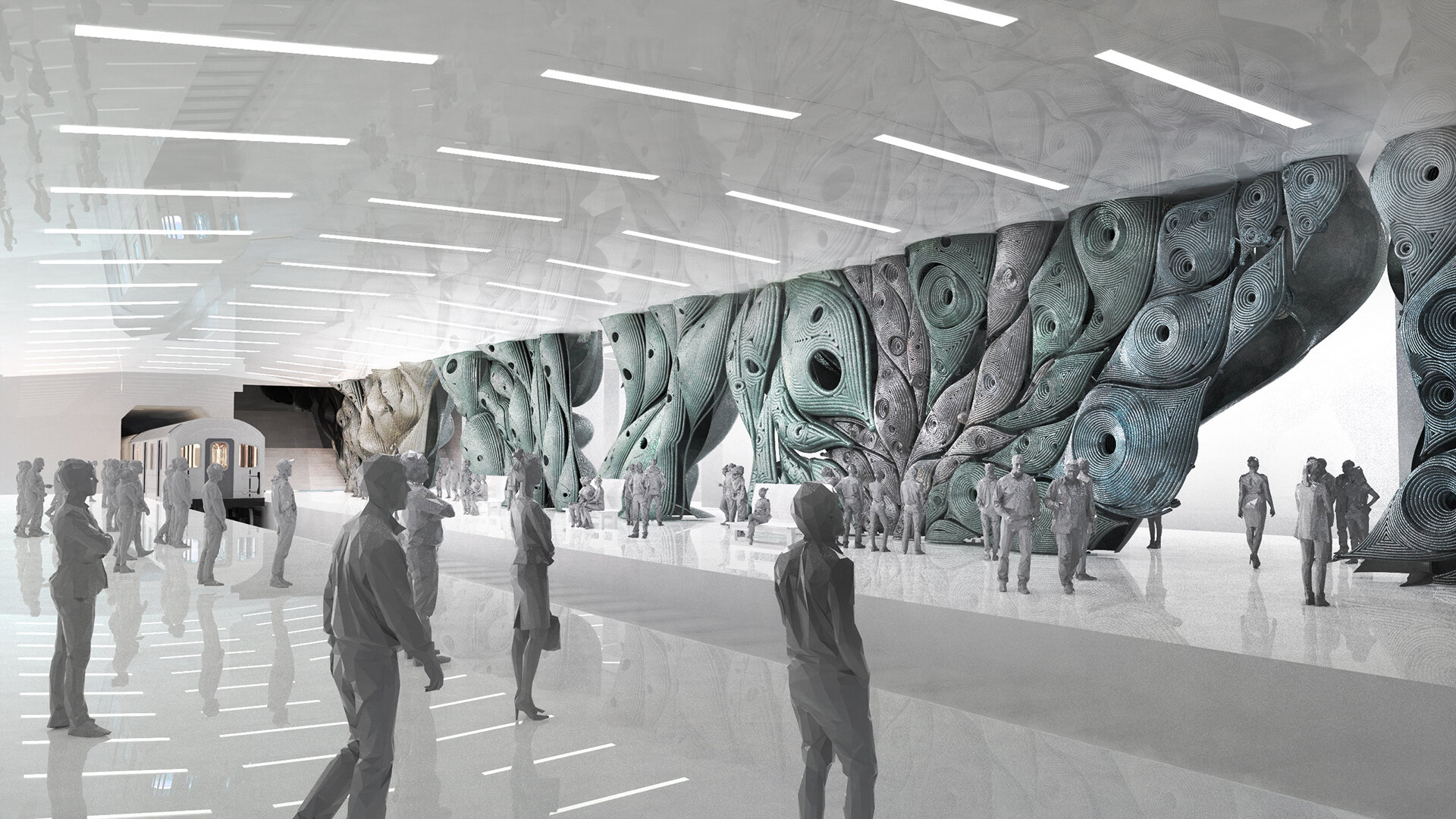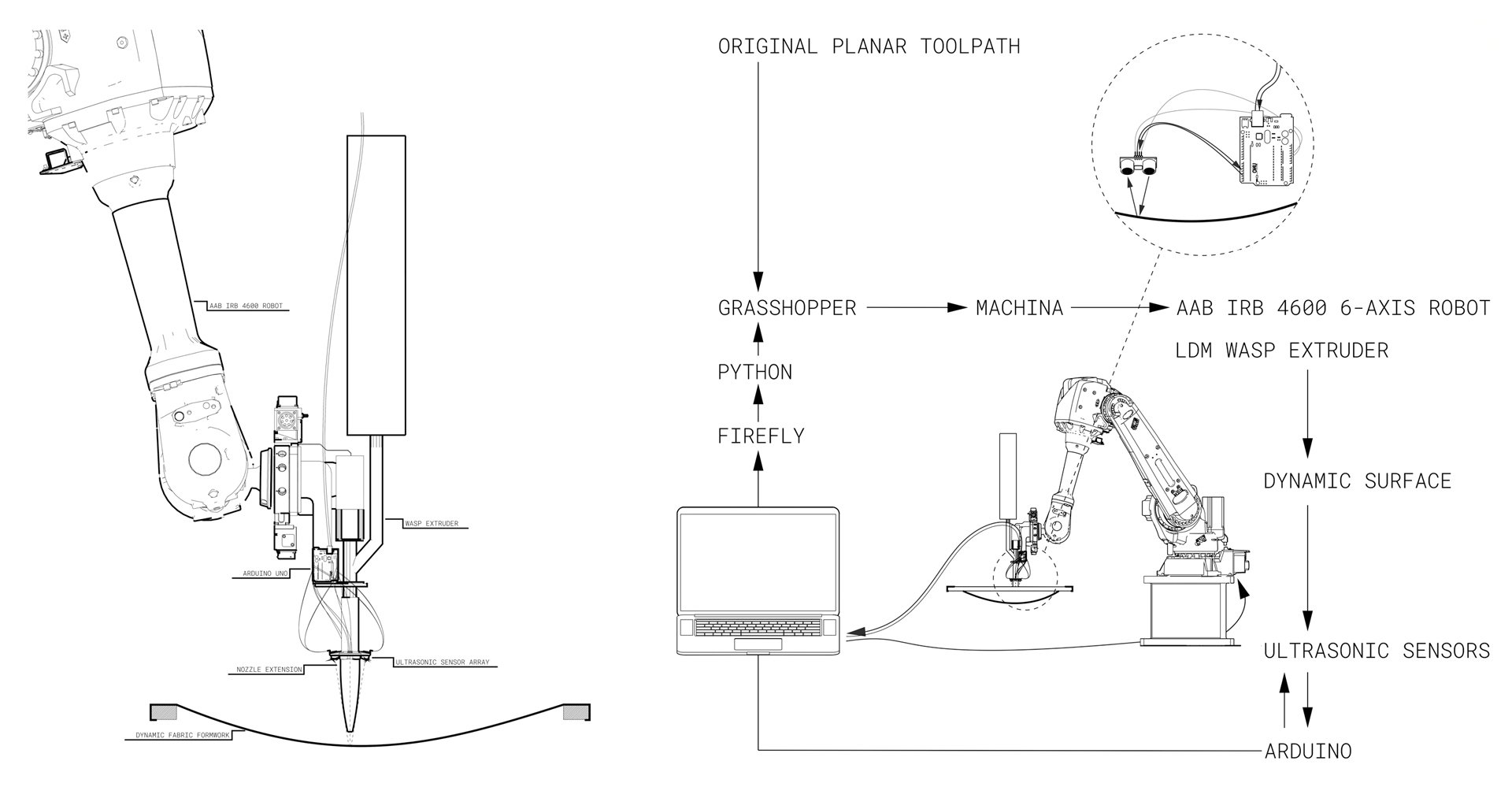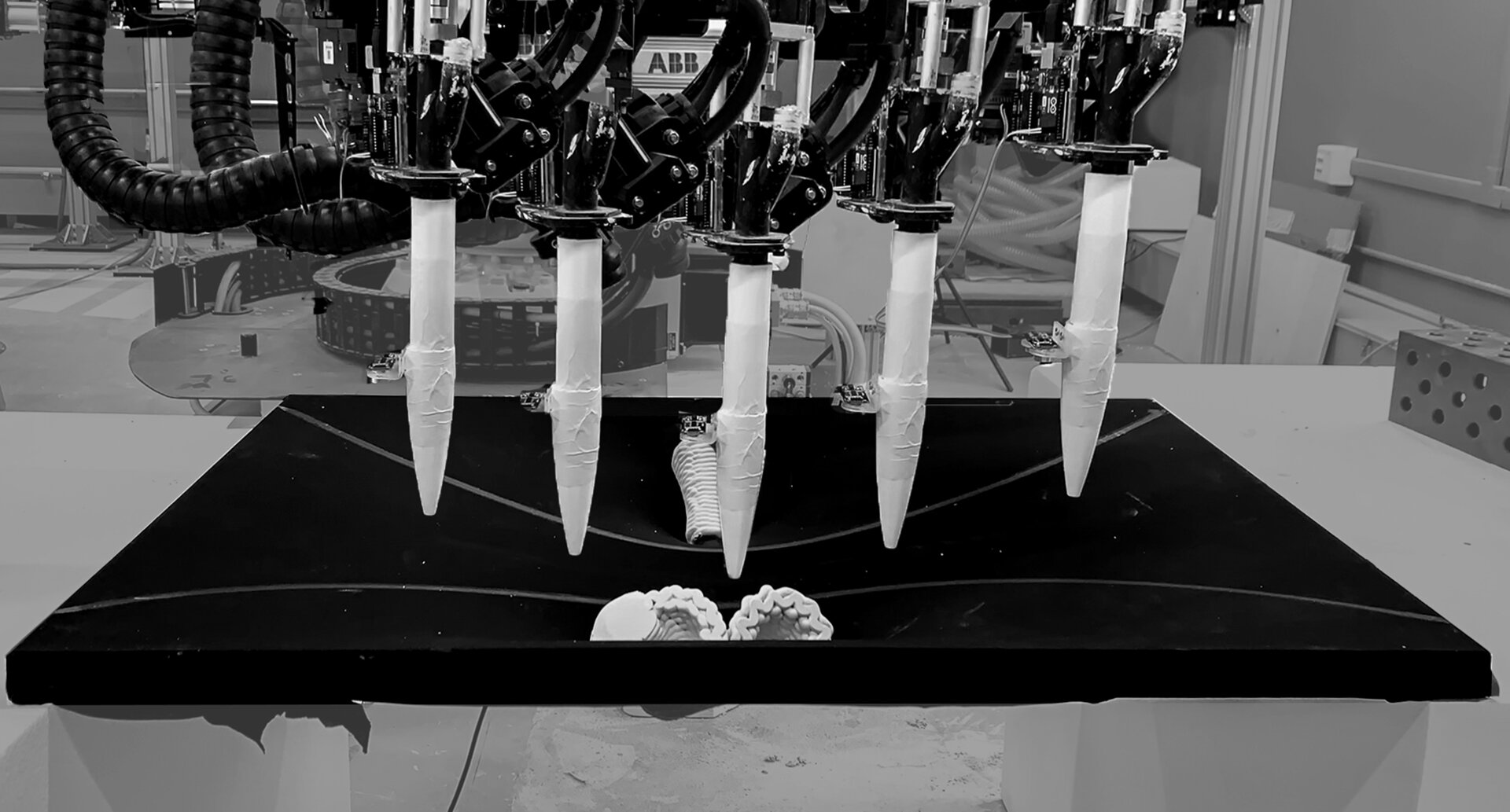Penn MSD-RAS ARCH802 Material Agencies: Robotics & Design Lab Final Review May 2021
Instructor: Robert Stuart-Smith, TA: Patrick Danahy
Projects developed in collaboration with courses ARCH804, 806, 808 & Instructors: Billy Faircloth, Nathan King, Jose Luis Garcia del Castillo y Lopez, Jeffrey Anderson
Penn MSD-RAS Program Director: Robert Stuart-Smith
Yuran Liu, Riley Studebaker, Yuxuan Wang
Grey Wartinger, Matthew White, Jiansong Yuan
Deon Kim, Geng Liu, Claire Moriarty
8020 Material Agencies: Robotics & Design Lab II
Instructor: Robert Stuart-Smith, TA: David Forero
Material Agencies: Robotics & Design Lab II questions the role of the designer and their relationship to materials and means of production, exploring varying degrees of design-production agency that might engage with the physical world in profoundly different ways. Robotic fabrication can extend production beyond automated routines with degrees of autonomy that enable sensitive material engagement to drive alternative forms of material expression. Robotics and AI technologies also support industrially scalable approaches to bespoke design for manufacture (DfMa) that might address material waste and cost, while allowing for more user or site customization. Such approaches are able to synthesize several architectural criteria while exploring aesthetic opportunities, shifting architectural design approaches from the generalized to the highly specific. Where possible, robotic fabrication and material production methods also act as generative contributors to creative design outcomes, with qualitative design character curated through the parallel development of custom approaches to conceiving, manipulating, and responding to matter.
“architecture in its material nature and in its animating essence is a plastic art” – Louis Sullivan, The Autobiography of an Idea (Sullivan, 2012).
This course operated within a multi-year research agenda that explored architectural ceramic assemblies for prototypical façade screen applications. Clay’s malleability provides substantial feedback to a ceramicist, enabling a complex dialogue between maker and material that leaves open a lot of possibilities for embodied forms of design-computation that leverage our ability to operate on and with matter. Ceramics is a versatile material that can be formed and finished in a multitude of ways, making it open to substantial design-experimentation. Addressing a research agenda and project brief shared by all final semester courses, Material Agencies operates outside of a traditional architecture brief where speculative design proposals are informed by a custom-developed design-to-production workflow. These research-led proposals are realized both in a multi-part fabricated prototype and a larger-scale design exploration. Consisting of lectures, coding and manufacturing tutorials, and desk-crits, the course supports teams’ iterative experimentation and development of custom robotic and computational approaches to manufacturing and architectural design. The course runs several times a week in Weitzman’s ARI robotics lab where students undertake project development work using industrial robot work cells both during class and in homework hours.
MSD-RAS Spring Semester
The MSD-RAS curricula provides an integrated, holistic approach to learning that does not conceptually distinguish between creative and technical work, instead, the program operates under the assumption that possibilities for innovation are at their best when these activities are considered together. In the final Spring semester of the program, students gain knowledge and skills in a wide range of subjects including scientific research and writing, advanced computer programming (for augmented reality, simulation and real-time robot control), material and industrial manufacturing processes, robot tooling, and generative computational design. This knowledge is applied within a single design-research project that is developed by student groups working across all spring courses. While each course is prepared and run by individual faculty who set a diverse range of assignments, the faculty collaborate to support students in developing a combined project that leverages the knowledge and skills taught in each course. Working in groups, each student's thesis is directed towards the development of a design-research project that can synthesize knowledge gained across classes. Projects are, therefore, multi-faceted in approach and arise from student and faculty collaborations throughout the final semester.
Courses contributing to this thesis project include:
802 Material Agencies: Robotics & Design Lab II (Design Studio):
Instructor: Robert Stuart-Smith
804 Advanced RAS Programming (Real-time Robotics & AR/VR Programming)
Instructor: Jeffrey Anderson (+ Jose Luis Garcia del Castillo y Lopez in 2020).
806 Experimental Tooling (Materials/industrial processes/tooling)
Instructor: Nathan King
808 Scientific Research & Writing (Research & Writing for Peer-Review Paper)
Instructor: Billie Faircloth




